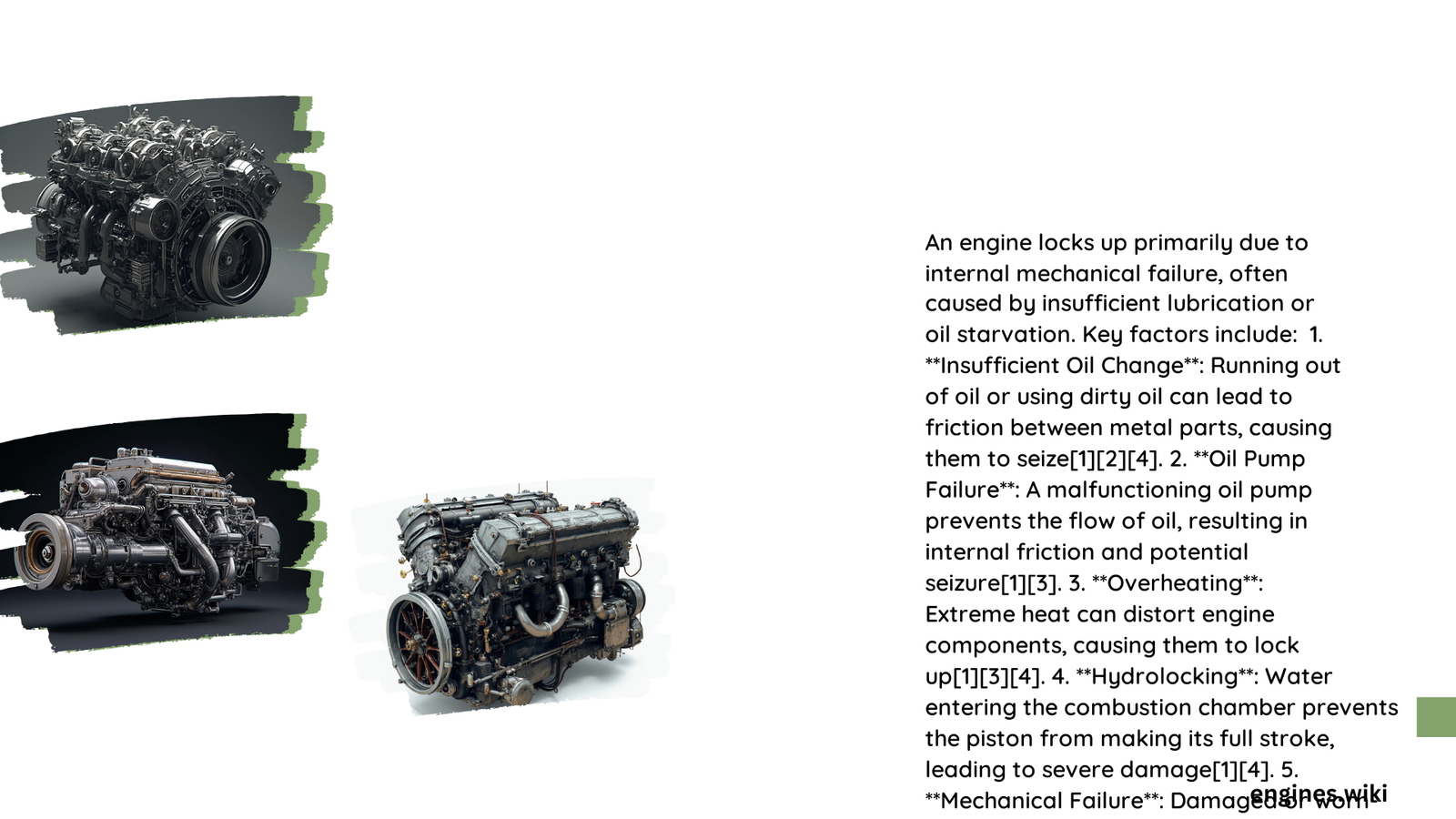Engine lockup represents a critical mechanical failure that can transform a functioning vehicle into an immobilized machine within moments. When an engine seizes, it typically occurs due to extreme thermal stress, insufficient lubrication, or catastrophic internal component failure, rendering the crankshaft unable to rotate and potentially causing thousands of dollars in damage.
What Causes an Engine to Lock Up?
Root Mechanical Failure Mechanisms
Lubrication System Breakdown
- Oil Pressure Collapse
- Normal oil pressure range: 60-90 psi
- Critical minimum pressure: 10-15 psi
- Consequences of low pressure:
- Increased metal-to-metal contact
- Rapid component wear
- Potential instantaneous seizure
Temperature-Induced Structural Failures
| Temperature Range | Potential Damage | Risk Level |
|---|---|---|
| 350-400°F | Mild Component Stress | Moderate |
| 400-500°F | Significant Mechanical Stress | High |
| 500°F+ | Imminent Structural Failure | Critical |
Why Do Engines Suddenly Stop Rotating?
Engines typically lock up due to several interconnected factors:
- Catastrophic Lubrication Failure
- Complete oil system breakdown
- Oil pump failure
- Blocked oil passages
-
Extreme oil viscosity degradation
-
Thermal Expansion Beyond Tolerances
- Cylinder walls expanding beyond design specifications
- Piston rings welding to cylinder walls
-
Crankshaft bearings losing dimensional integrity
-
Mechanical Component Interference
- Broken connecting rod
- Damaged crankshaft
- Catastrophic bearing failure
Diagnostic Indicators of Potential Engine Lockup
Warning Signs Before Complete Seizure
- Knocking or ticking sounds
- Sudden power loss
- Increased engine temperature
- Grinding mechanical noises
- Difficulty rotating engine manually
Prevention Strategies
Maintenance Protocols
- Regular oil changes
- Consistent coolant system maintenance
- Monitoring temperature gauges
- Addressing warning indicators immediately
- Using high-quality lubricants
Economic Impact of Engine Lockup
Repair Cost Breakdown
– Minor repair: $1,500 – $3,000
– Moderate engine damage: $3,000 – $7,000
– Complete engine replacement: $7,000 – $20,000
Technical Recommendations

- Perform quarterly comprehensive engine inspections
- Use high-quality synthetic lubricants
- Monitor and record engine performance metrics
- Address any unusual sounds or performance changes immediately
Conclusion
Engine lockup represents a complex mechanical failure requiring immediate professional intervention. Understanding the underlying mechanisms can help vehicle owners recognize and potentially prevent catastrophic engine damage.
